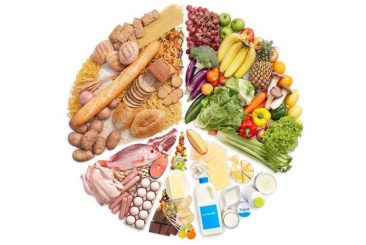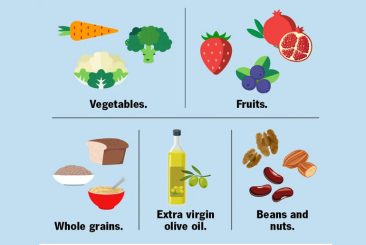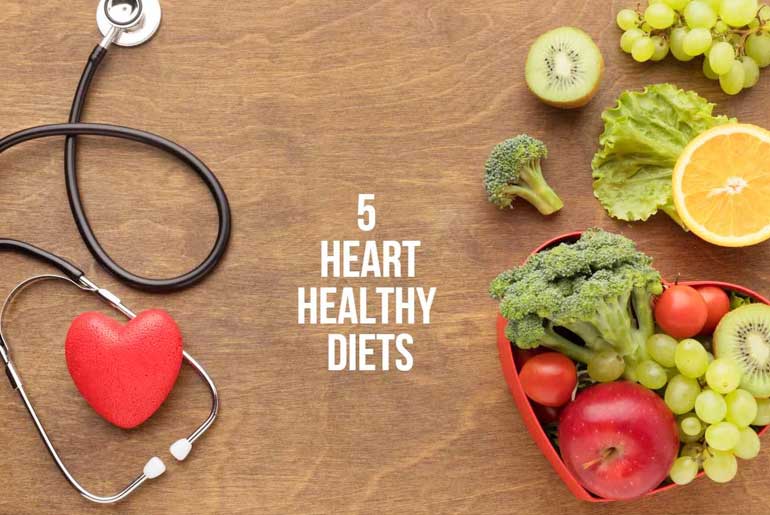Diets play a significant role in our overall health, and several popular options are distinguished by their potential impact on heart health. The DASH diet prioritizes whole foods, fruits, vegetables, and limited sodium for blood pressure control, while the Mediterranean diet’s focus on heart-healthy fats, lean proteins, and abundant produce supports cardiovascular wellness. Plant-based Popular diets emphasize nutrient-rich plant foods, reducing risk factors for heart disease. A low-sodium diet reduces salt intake, aiding blood pressure management and lowering cardiovascular risks. The ketogenic diet, high in fats and low in carbs, may lead to weight loss and improved blood sugar control but raises questions about its effects on heart health and nutritional balance. Each diet carries unique benefits and considerations, highlighting the importance of informed choices aligned with individual health goals.
Here’s a comparison of 5 popular diets scored for their potential impact on heart health. Please note that these scores are based on general principles and considerations; individual results may vary based on personal health status, preferences, and adherence to the diet.
1.DASH Diet:
The DASH diet, which stands for Dietary Approaches to Stop Hypertension, is a dietary plan primarily designed to prevent and manage high blood pressure (hypertension). However, it has also been recognized for its positive impact on overall heart health. Here’s an overview of the DASH diet:

Principles of the DASH Diet: The DASH diet emphasizes a balanced and nutrient-rich approach to eating, focusing on foods that are known to help lower blood pressure and improve cardiovascular health.
Key Features:
- High Intake of Fruits and Vegetables: The DASH diet encourages consuming a variety of fruits and vegetables daily. These foods are rich in vitamins, minerals, antioxidants, and dietary fiber, which contribute to heart health.
- Whole Grains: Whole grains like brown rice, whole wheat bread, and quinoa are preferred over refined grains. Whole grains provide essential nutrients and fiber, supporting heart health and regulating blood sugar levels.
- Lean Proteins: The diet promotes lean protein sources such as poultry, fish, beans, legumes, and nuts. These proteins are lower in saturated fat, which can benefit heart health.
- Low-Fat Dairy: Low-fat or fat-free dairy products are recommended to reduce saturated fat intake while still obtaining necessary calcium and other nutrients.
- Limited Sweets and Added Sugars: The DASH diet encourages minimizing the consumption of sugary foods and beverages, as excessive sugar intake can contribute to various health issues, including heart disease.
- Low Sodium: The DASH diet places a strong emphasis on reducing sodium (salt) intake. Lowering sodium intake can help manage blood pressure and reduce the risk of heart-related complications.
Benefits: The DASH diet has been associated with several health benefits, including:
- Lowering high blood pressure.
- Reducing the risk of heart disease and stroke.
- Supporting weight loss and maintenance.
- Improving overall cardiovascular health.
- Enhancing nutrient intake due to the emphasis on whole foods.
Drawbacks and Considerations:
- Adhering to the DASH diet might be challenging for some individuals due to its emphasis on reduced sodium intake and changes in eating habits.
- The diet may require careful meal planning and preparation.
- Individuals with specific dietary needs or preferences may need to modify certain aspects of the diet.
Conclusion: The DASH diet is a well-balanced eating plan that aims to improve heart health and manage blood pressure. Its emphasis on whole foods, fruits, vegetables, lean proteins, and limited sodium intake aligns with recommendations for reducing the risk of heart disease and promoting overall well-being. If you’re considering adopting the DASH diet, consulting a healthcare professional or registered dietitian is advisable to ensure that it suits your individual health needs and goals.
2. Mediterranean Diet:
The Mediterranean diet is a well-known and highly regarded dietary pattern inspired by the traditional eating habits of people living in countries bordering the Mediterranean Sea. It is not only recognized for its delicious and diverse flavors but also for its numerous health benefits, particularly for heart health. Here’s an overview of the Mediterranean diet:

Key Components of the Mediterranean Diet: The Mediterranean diet is characterized by its focus on whole, minimally processed foods that provide a wide range of nutrients and promote overall well-being. Key features include:
- Abundance of Fruits and Vegetables: The diet emphasizes a variety of colorful fruits and vegetables, which are rich in vitamins, minerals, antioxidants, and dietary fiber.
- Whole Grains: Whole grains like whole wheat, brown rice, and oats provide sustained energy and are sources of fiber, vitamins, and minerals.
- Healthy Fats: Instead of saturated and trans fats, the Mediterranean diet emphasizes healthy fats from sources such as olive oil, nuts, seeds, and fatty fish like salmon and sardines.
- Lean Proteins: Lean protein sources include fish, poultry, beans, legumes, and moderate consumption of dairy products, particularly yogurt and cheese.
- Fish and Seafood: The Mediterranean diet encourages regular consumption of fish and seafood, which are rich in omega-3 fatty acids that support heart health.
- Limited Red Meat: Red meat consumption is minimized in favor of other protein sources. When consumed, lean cuts are preferred.
- Herbs and Spices: Herbs and spices are used to flavor dishes, reducing the need for excessive salt. This promotes lower sodium intake, benefiting blood pressure.
- Moderate Wine Consumption: In some versions of the Mediterranean diet, moderate consumption of red wine with meals is allowed, although this is optional.
Benefits of the Mediterranean Diet: The Mediterranean diet has been associated with numerous health benefits:
- Reduced risk of heart disease and stroke.
- Improved cholesterol levels and blood pressure.
- Better weight management and weight loss.
- Lower risk of type 2 diabetes.
- Enhanced cognitive function and reduced risk of cognitive decline.
- Reduced inflammation in the body.
- Protection against chronic diseases like certain types of cancer.
Drawbacks and Considerations:
- While the Mediterranean diet is rich in whole foods, it may be costlier than Popular diets heavily reliant on processed foods.
- Adapting to a new way of eating and meal preparation may require time and effort.
- Individuals with specific dietary restrictions or preferences may need to adjust certain aspects of the diet.
Conclusion: The Mediterranean diet is widely recognized as a heart-healthy eating pattern that promotes overall well-being. Its emphasis on nutrient-rich foods, healthy fats, and a balanced approach to eating aligns with recommendations for preventing heart disease and maintaining good health. If you’re considering adopting the Mediterranean diet, consulting a healthcare professional or registered dietitian is advisable to tailor the diet to your individual needs and preferences.
3. Plant-Based/Vegetarian Diet:
A plant-based or vegetarian diet is a dietary approach that focuses on consuming predominantly or exclusively plant-derived foods, with limited or no consumption of animal products. This eating pattern has gained popularity for its potential health benefits, including its positive impact on heart health. Here’s an overview of the plant-based and vegetarian Popular diets:

Types of Plant-Based/Vegetarian Diets: There are several variations of plant-based and vegetarian Popular diets, each with varying degrees of restriction on animal products:
- Vegan Diet: Excludes all animal products, including meat, poultry, fish, dairy, eggs, and honey. A vegan diet is entirely plant-based.
- Vegetarian Diet: Eliminates meat, poultry, and fish but may include dairy products and eggs. There are different levels of vegetarianism, such as lacto-vegetarian (includes dairy) and ovo-vegetarian (includes eggs).
- Flexitarian Diet: Also known as a semi-vegetarian diet, it primarily consists of plant-based foods but allows occasional consumption of small amounts of meat, poultry, fish, or other animal products.
Key Features of Plant-Based/Vegetarian Popular Diets:
- Abundance of Fruits and Vegetables: Plant-based Popular diets are rich in fruits, vegetables, whole grains, legumes, nuts, and seeds. These foods are high in vitamins, minerals, antioxidants, and dietary fiber.
- Plant Proteins: Protein sources in plant-based Popular diets include beans, lentils, chickpeas, tofu, tempeh, nuts, seeds, and whole grains. These proteins are often lower in saturated fat compared to animal proteins.
- Healthy Fats: Plant-based Popular diets emphasize healthy fats from sources such as avocados, nuts, seeds, and olive oil. These fats support heart health.
- Whole Grains: Whole grains like brown rice, quinoa, and whole wheat provide sustained energy and important nutrients.
- Limited Animal Products: Depending on the type of plant-based diet, animal products may be eliminated or limited, reducing saturated fat and cholesterol intake.
- Dairy Alternatives: Plant-based milk alternatives like almond milk, soy milk, and oat milk can replace dairy in the diet.
Benefits of Plant-Based/Vegetarian Popular Diets:
- Lower risk of heart disease: Plant-based Popular diets are associated with reduced risk factors for heart disease, including lower blood pressure, improved cholesterol levels, and healthier weight management.
- Reduced risk of type 2 diabetes: These Popular diets are linked to a lower risk of developing type 2 diabetes.
- Better weight management: Plant-based Popular diets can support weight loss and maintenance due to their focus on nutrient-dense, low-calorie foods.
- Improved digestive health: High fiber content from plant foods supports digestive health and may reduce the risk of certain gastrointestinal disorders.
- Reduced environmental impact: Plant-based Popular diets generally have a lower carbon footprint and require fewer natural resources compared to diets high in animal products.
Considerations:
- Proper meal planning is important to ensure adequate intake of essential nutrients like vitamin B12, iron, calcium, omega-3 fatty acids, and protein.
- A well-balanced and varied diet is crucial to meet all nutritional needs.
- Individual preferences, health conditions, and cultural considerations may influence dietary choices.
Conclusion: Plant-based and vegetarian Popular diets are associated with numerous health benefits, including heart health. By emphasizing plant foods and minimizing or excluding animal products, these diets can support overall well-being. If you’re considering adopting a plant-based or vegetarian diet, consulting a healthcare professional or registered dietitian is recommended to ensure that your dietary choices meet your individual nutritional needs and goals.
4.Low-Sodium Diet:
A low-sodium diet is a dietary approach that aims to reduce the intake of sodium, also known as salt, in order to promote better health, particularly cardiovascular health. Sodium is an essential mineral required for various bodily functions, but excessive consumption of sodium, often through high levels of salt in the diet, can contribute to health issues, especially high blood pressure and related cardiovascular problems. Here’s an overview of the low-sodium diet:

Key Features of a Low-Sodium Diet:
- Limited Salt Intake: The primary focus of a low-sodium diet is to reduce salt intake. This involves avoiding or minimizing the use of added salt during cooking and at the table.
- Choosing Low-Sodium Foods: Foods that are naturally low in sodium are preferred. These include fresh fruits, vegetables, whole grains, lean proteins, and unsalted nuts and seeds.
- Reading Labels: Processed and packaged foods often contain hidden sodium. Reading nutrition labels can help you identify high-sodium products and make informed choices.
- Cooking at Home: Preparing meals at home allows you to control the amount of salt used in cooking and avoid the excessive sodium content often found in restaurant meals.
- Limiting Processed Foods: Many processed and fast foods are high in sodium. Reducing or avoiding these foods is a key component of a low-sodium diet.
Benefits of a Low-Sodium Diet:
- Blood Pressure Management: High sodium intake can lead to increased blood pressure, which is a major risk factor for heart disease and stroke. A low-sodium diet can help manage and reduce blood pressure levels.
- Reduced Cardiovascular Risk: Lowering sodium intake is associated with a reduced risk of heart disease, stroke, and other cardiovascular conditions.
- Kidney Health: Excessive sodium consumption can strain the kidneys. A low-sodium diet may help maintain healthy kidney function, especially in individuals with kidney conditions.
- Fluid Balance: A balanced sodium intake supports proper fluid balance in the body, helping to prevent fluid retention and swelling.
Considerations:
- Balanced Nutrition: While reducing sodium is important, it’s essential to maintain a balanced diet that provides all the necessary nutrients for overall health.
- Individual Needs: Some individuals may need more or less sodium based on their health status, activity level, and other factors. Consulting a healthcare professional or registered dietitian can help determine appropriate sodium levels.
- Hidden Sodium: Sodium can be found in unexpected places, including condiments, sauces, and some canned or frozen foods. Reading labels is crucial to identify hidden sodium sources.
Conclusion: A low-sodium diet is a valuable approach to supporting heart health and reducing the risk of cardiovascular diseases. By focusing on whole, minimally processed foods and avoiding excessive salt, individuals can lower their blood pressure, promote heart health, and enhance overall well-being. If you’re considering adopting a low-sodium diet, it’s advisable to work with a healthcare professional or registered dietitian to ensure that your sodium reduction efforts are appropriate for your individual health needs.
5. Ketogenic Diet:
The ketogenic diet, often referred to as the keto diet, is a high-fat, low-carbohydrate eating plan that has gained popularity for its potential to promote weight loss and provide certain health benefits. The diet is designed to induce a state of ketosis, where the body uses fat for fuel instead of carbohydrates. While it has been used for specific medical purposes, such as managing epilepsy, its use for weight loss and general health has garnered attention. Here’s an overview of the ketogenic diet:

Key Features of the Ketogenic Diet:
- High Fat Intake: The ketogenic diet emphasizes consuming a high percentage of calories from healthy fats. Sources of fats include avocados, nuts, seeds, olive oil, coconut oil, butter, and fatty cuts of meat.
- Low Carbohydrate Intake: Carbohydrates are drastically restricted in a ketogenic diet. This includes reducing or eliminating foods high in carbs, such as grains, starchy vegetables, fruits, and sugary foods.
- Moderate Protein: Protein intake is moderate on a ketogenic diet. Protein sources can include meat, poultry, fish, eggs, and some dairy products.
- Achieving Ketosis: The goal of the ketogenic diet is to shift the body’s metabolism into a state of ketosis. In this state, the body burns fat for fuel, producing molecules called ketones. This process may lead to weight loss and reduced appetite.
Potential Benefits of the Ketogenic Diet:
- Weight Loss: Many individuals experience weight loss on the ketogenic diet due to reduced calorie intake and increased fat burning.
- Blood Sugar Control: The keto diet may help improve blood sugar levels, making it a potential option for people with type 2 diabetes.
- Reduced Seizures: The ketogenic diet has been used to manage epilepsy, particularly in children who don’t respond well to medication.
- Increased Energy: Some people report increased mental clarity and energy levels while in ketosis.
Considerations and Challenges:
- Nutritional Imbalance: The ketogenic diet may lead to nutritional imbalances if not carefully planned. The diet restricts several food groups, potentially leading to deficiencies in fiber, vitamins, and minerals.
- Transition Period: Some individuals experience the “keto flu” during the initial stages of adopting the diet, which may include symptoms like fatigue, headaches, and irritability.
- Limited Food Choices: The strict carbohydrate restriction may make it challenging to follow the diet long-term, as it eliminates many foods that are considered healthy.
- Effect on Heart Health: While the diet is high in fats, not all fats are created equal. It’s important to choose healthy fats and avoid excessive intake of saturated fats, which can negatively impact heart health.
Important Notes:
- The ketogenic diet may not be suitable for everyone, especially individuals with certain medical conditions or those who are pregnant or breastfeeding.
- Long-term effects of the ketogenic diet on overall health and heart health are still being studied.
Conclusion: The ketogenic diet is a unique eating plan that shifts the body into a state of ketosis, which may lead to weight loss and other potential benefits. While it has shown promise for certain medical conditions, its impact on long-term heart health is still being studied. If considering the ketogenic diet, it’s important to work with a healthcare professional or registered dietitian to ensure that the diet is properly planned, balanced, and suitable for individual health needs.
Important Considerations:
- Adherence: The best diet is one that you can stick to and maintain consistently over time.
- Nutritional Balance: Diets that are balanced, rich in nutrients, and meet individual nutritional needs are generally more supportive of heart health.
- Personal Health: Individuals with specific health conditions or dietary needs should consult healthcare professionals before making significant dietary changes.
Remember that individual health goals and preferences play a significant role in choosing a diet. Consulting a healthcare professional before making significant dietary changes is recommended. While these scores provide a general overview, personal health considerations should guide diet decisions.
Conclusion: The DASH diet and Mediterranean diet are widely recognized as excellent choices for heart health due to their emphasis on nutrient-rich whole foods and positive impact on cardiovascular risk factors. Plant-based and low-sodium diets also offer heart health benefits. The ketogenic diet, while effective for some purposes, may not be the optimal choice for long-term heart health due to its nutritional composition. Ultimately, choosing a
Disclaimer:
The information contained in this article is for educational and informational purposes only and is not intended as a health advice. We would ask you to consult a qualified professional or medical expert to gain additional knowledge before you choose to consume any product or perform any exercise.









